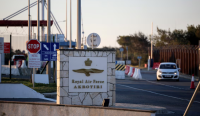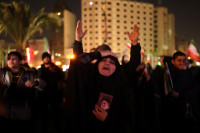World
Trump, Modi avoid discussing minority rights in meeting
The leaders’ formal remarks as they met at the White House and then spoke at a joint press conference made no mention of rights issues, and neither did their online statements.
Reuters
US President Donald Trump and India’s Hindu nationalist Prime Minister Narendra Modi discussed issues ranging from weapons sales to trade when they met in Washington on Thursday but in public remarks avoided the sensitive subjects of human rights and minority abuses.
Concerns over India’s human rights track record have taken a bipartisan backseat in Washington in recent years as India gained clout by boosting its US trade and emerging as a partner in countering China, experts say, noting Trump’s second presidency will continue that trend.
The leaders’ formal remarks as they met at the White House and then spoke at a joint press conference made no mention of rights issues, and neither did their online statements.
“Trump is unlikely to take a position on rights issues in India. And that’s largely because his foreign policy is staunchly interests-based, affording little space for values-based considerations such as human rights abroad,” said Michael Kugelman, director of the South Asia Institute at the Wilson Center think-tank.
While former President Joe Biden also maintained strong India ties, his top diplomat Antony Blinken occasionally condemned minority abuses.
State Department reports on human rights and religious freedom have noted abuses in India in recent years. New Delhi calls them “deeply biased.”
SIMILAR PERSONALITIES
Chietigj Bajpaee, senior research fellow at the Chatham House think-tank, called Modi and Trump “strongman” leaders with shared perceptions. Kugelman said their similarities, including on their approach to human rights, strengthen their chemistry.
Rights groups have over the years criticized both Trump and Modi’s records.
Trump has stopped US engagement with the U.N. Human Rights Council and his plan to take over Gaza is called a proposal of ethnic cleansing by rights experts. He has also dismantled US diversity, equity and inclusion programs aimed at uplifting marginalized groups.
Trump says he is advancing US interests and calls DEI discriminatory.
Amnesty International and Human Rights Watch fault Modi’s government over its treatment of minorities.
They point to rising hate speeches, a religion-based citizenship law the U.N. calls “fundamentally discriminatory,” anti-conversion legislation that challenge freedom of belief, the removal of Muslim-majority Kashmir’s special status and the demolition of properties owned by Muslims.
Modi denies discrimination and says his policies, like food subsidy schemes and electrification drives, benefit everyone.
Immigration was a topic of discussion on Thursday. Trump has prioritized handling illegal immigration while India advocates for US visas for skilled professionals. Indians account for the bulk of H-1B visas, which Trump backs.
In the press conference on Thursday, Modi urged dialogue to eradicate human trafficking that he blamed for illegal immigration. He said India was “fully prepared” to take back any verified Indian who was in the US illegally.
Separately, since 2023, India’s alleged targeting of Sikh separatists has emerged as a wrinkle in US-India ties, with Washington charging an ex-Indian intelligence officer in a foiled US plot.
Kugelman noted that given his nationalist politics, “it’s hard to imagine Trump pushing for (the case) to be halted.”
India labels Sikh separatists, including in the US, as security threats. When asked, Trump did not comment directly but said the US and India worked together on crime, citing the approval of the extradition to India of a man accused of involvement in the 2008 Mumbai attacks that killed dozens.




 9.7°C Kathmandu
9.7°C Kathmandu














